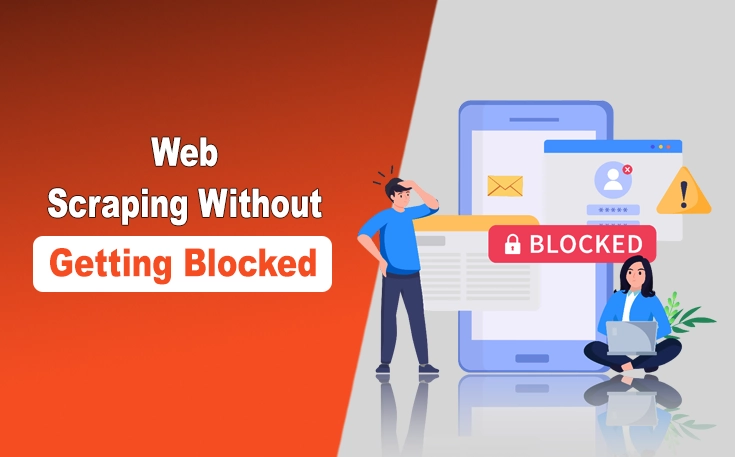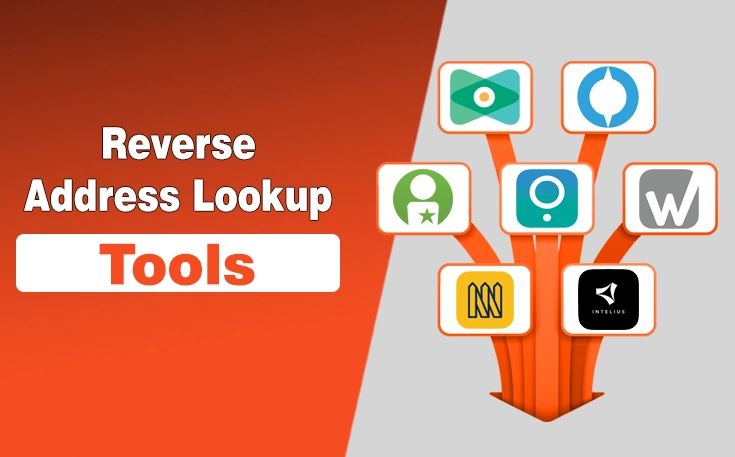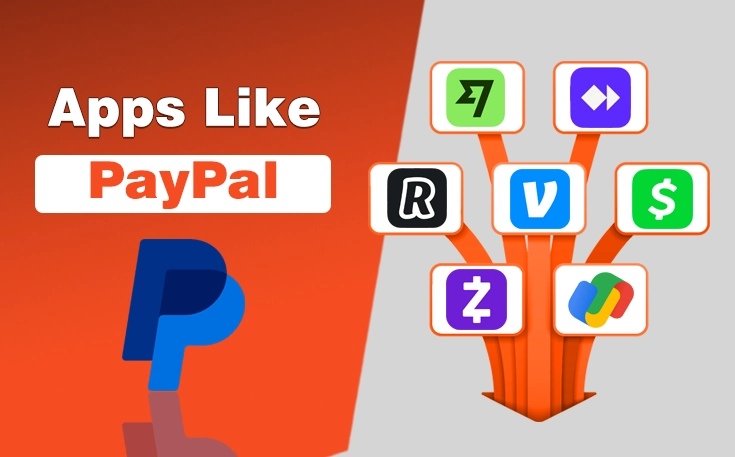Web scraping is a useful way to extract information from the internet. Scraping can give you a lot of power, whether you’re keeping an eye on prices, aggregating informative content, or doing market research. But there’s a catch: websites don’t always let bots visit, and if you’re not careful, you could get blocked.
Such a situation will be very frustrating.
In this blog post, I will share some pro tips for web scraping without getting blocked.
Let’s start!
How Websites Detect & Block Web Scrapers?
Here is how websites block scraping bots:
- IP Tracking: Websites usually track your IP address and analyze your requests. If you have sent too many requests to a site, it will assume your bot and block it immediately.
- CAPTCHAs: Sometimes, a site hides a page (containing too sensitive information) behind a CAPTCHA. This CAPTCHA is very difficult for bots to solve, ensuring that only humans can access the valuable information.
- JavaScript Challenges: Many websites use JavaScript to load content and analyze user behavior. If a scraping bot fails to execute JavaScript, it can’t load important elements. This alerts websites that the client is not a human, and they block your access.
- Lack of interaction events: Being a human, you often click, scroll, hover, and interact with pages in different ways. The absence of such interaction lets a site analyze whether a visitor is a human or using a scraping bot.
- Cookie monitoring: Your bot can’t handle cookies properly as like as a human can. This signals automation to the website, and it restricts you from navigating its pages.
Pro Tips to Avoid Getting Blocked While Web Scraping
There are many tips that you can implement to reduce the chances of getting blocked during this web-data extraction process. Some of them are:

1. Rotate Residential Proxies
Rotating residential proxies is one of the best ways to bypass anti-scraping bots and avoid getting blocked. Now, a question will surely come to your mind: What are residential proxies? Let me explain below:
What are residential proxies?
Residential proxies are types of proxies that use IP addresses of homes and individuals that are assigned to them by Internet Service Providers(ISPs). You can use these proxies for many online activities, from marketing to SEO monitoring.
As hinted in the previous section, a site can block your access if a large number of requests are made using the same IP address. These residential proxies(using many IP addresses) make these requests appear as if they are coming from different real users. They make your bots appear as if they are real users.
So, rotating these residential proxies or IPs manipulates anti-scraping bots and saves you from getting blocked. This rotation maintains your anatomy and makes your traffic appear less like a single(identifiable user).
2. Randomize Crawling Actions
Another tip that is used to avoid restrictions from any site is randomizing crawling actions. When scraping a website, you repeatedly perform some actions, including clicking the same element multiple times or scrolling the same height repeatedly.
This repetition often gets noticed, and that website immediately blocks you. To avoid this repetition, you can follow some tips discussed below:
- Add a random delay between each request to simulate human browsing.
- Randomly scroll different heights and pause within scrolling actions to mimic natural behavior.
- Rotate user-agent strings to make your bot appear as multiple different browsers or devices.
- Randomize clicks on different elements instead of repeating the same pattern every session.
So, these basic tips ensure that you can extract data without the tension of getting blocked.
3. Avoid Fingerprinting
Fingerprinting is a method that websites use to recognize users by gathering information such as browser type, operating system, screen size, plugins, and more. This creates a distinct ID for every visitor. An important part of fingerprinting is the TLS handshake, where a client sends a “Client Hello” message with details like supported TLS versions and cipher suites. Bots usually do not pass this step, making them easy to spot and block.
To prevent this, you can change your scraper’s TLS settings to behave more like a real browser. Tools like Curl Impersonate can help with this.
4. Avoid Repeated Failed Attempts
If your scraper bot is constantly sending rejected and wrong requests to a site, the probability of your getting blocked increases ten times. This scenario is common in a large-scale scraping, where multiple requests are rejected due to some reasons, such as;
- The layout of any website has been changed, including updated class names, IDs, or HTML tags.
- Poor internet service causes incomplete responses.
- Trying to access blocked or restricted pages without solving the CAPTCHA.
- Time is short, and the scraper has sent too many requests.
There are multiple techniques that can be followed to address this issue. Let’s discuss a few of them below:
- Monitor website’s changes regularly and adjust the bot to accommodate the new structure of this site.
- Ensure you log failed scraping attempts and set up notifications to suspend scraping when a request fails.
- After each request, check if the URL is correct and the content is as expected. If not, stop or adjust the scraper.
- Use a pool of proxies( discussed in the first section) and different user-agent strings to appear like different users, reducing the risk of getting blocked.
5. Automate CAPTCHA Solving
Whenever you visit any website and want to access any sensitive information, you have to encounter multiple CAPTCHAs. They are puzzle-like questions that differentiate between humans and bots and are asked in various forms, such as “I am not a robot”, “I am a human”, etc.
You have to solve these puzzles, which are not only time-consuming but also break the smooth flow of scraping. However, here’s not to worry. There are many online anti-CAPTCHA tools and extensions that you can use when visiting a website.
Final Thoughts
Rarely, when a user navigates to a site to extract its data, they may encounter many restrictions and get blocked. This can be due to several reasons, such as using the same IP for many requests or the lack of JavaScript execution. Using the above-mentioned tips, you can extract data easily without getting blocked.
Need custom app with amazing features?
Get a Quote




